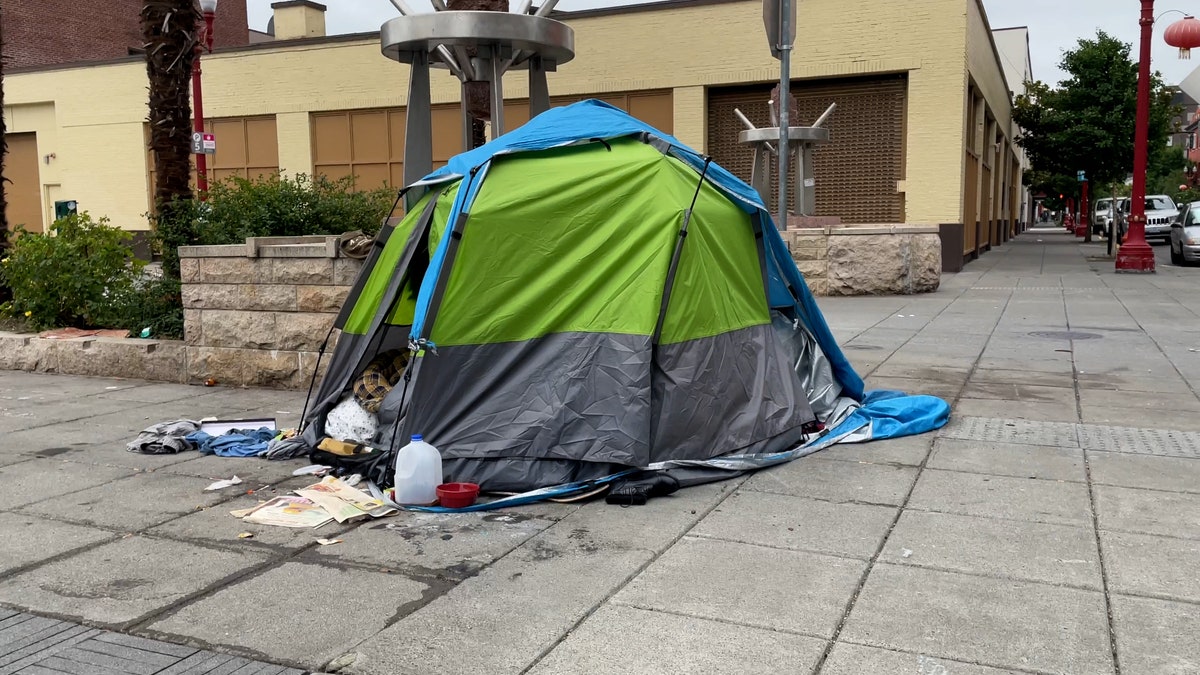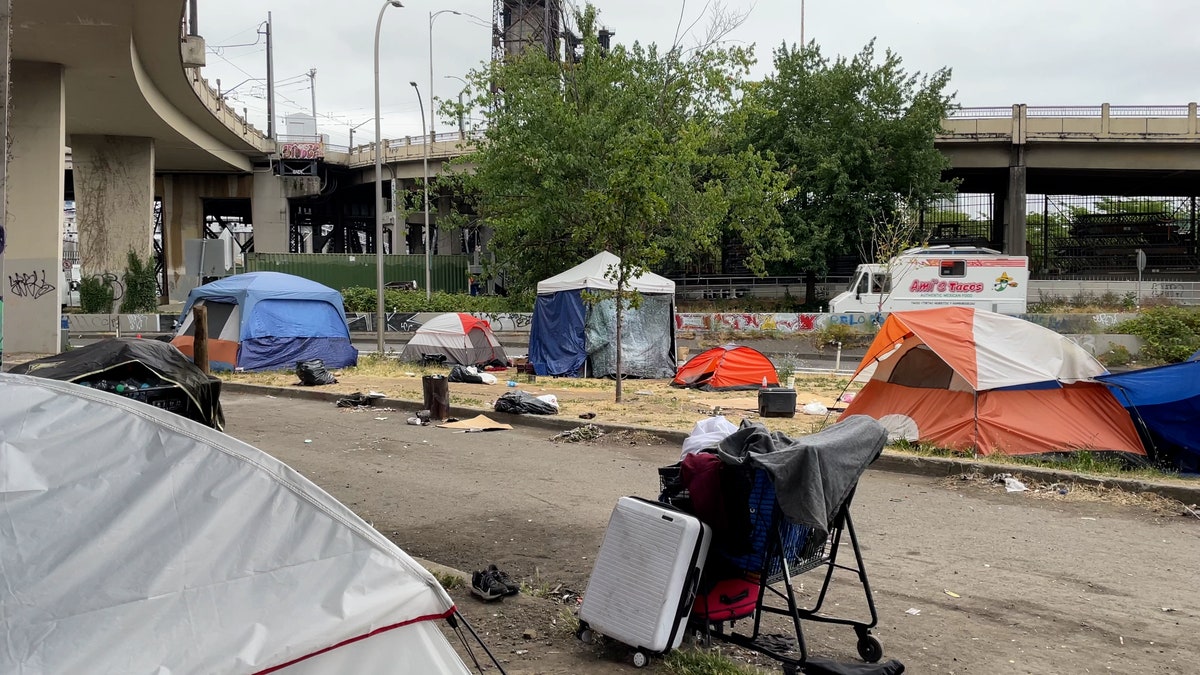On the heels of the Supreme Court ruling that cities can outlaw homeless camps, at least two Oregon Democrats have signaled a desire to roll back a 2021 state law limiting municipalities’ ability to ban camping on public property.
“Our communities deserve streets that are safe and clean, not only for residents but also for businesses that drive our economy,” state Rep. Mark Meek said in a statement, according to the Portland Tribune. “We must reform restrictive laws… so that local communities can maintain public safety.”
‘ENDLESS REVOLVING DOOR’: BLUE STATE WILL RECRIMINALIZE DRUGS, BUT ONE KEY OFFICIAL IS LOOKING FOR A LOOPHOLE
In a 6-3 decision, the Supreme Court last week overturned a 9th Circuit ruling that found laws banning homeless people from sleeping in parks and on sidewalks violated the Eighth Amendment prohibition on cruel and unusual punishments. That case originated in Grants Pass, Oregon, and West Coast leaders across the political spectrum said it hamstrung efforts to clean up streets.
The new ruling gives cities more options as they grapple with an unsheltered homelessness epidemic, but in Oregon, a separate state law could still tie officials’ hands.
“Cities right now have been given so many different competing guidelines that there is a significant amount of uncertainty,” state Rep. Paul Evans said, according to OPB.
CRISIS IN THE NORTHWEST: INSIDE ONE OF OREGON’S LARGEST HOMELESS CAMPS WITH A FORMER DRUG DEALER
Oregon lawmakers passed a bill in 2021 that requires local ordinances regulating sitting, lying and sleeping on public property to be “objectively reasonable as to time, place and manner.” Then-House Speaker Tina Kotek, a Democrat who is now Oregon’s governor, championed the law.
Meek and Evans are among just three Democrats still serving who voted against the bill in 2021, OPB reported. After the Supreme Court’s ruling, they joined Republican minority leaders in calling for a change to the law, raising the likelihood that state lawmakers could take up the issue when they reconvene early next year.
But they’d have to get more of their own party on board, and the Democratic chair of the House Housing and Homelessness Committee told OPB the existing law “struck a good balance” for cities and homeless people.
Leaders like Portland Mayor Ted Wheeler disagree, arguing the word “reasonable” is too subjective.

SPENDING ON HOMELESSNESS SPIKES TO A ‘SHOCKING’ AMOUNT IN PORTLAND METRO AREA
Under the state law, a judge indefinitely barred Portland from enforcing a 2023 ordinance banning people from blocking access to businesses or sidewalks with tents from 8 a.m. until 8 p.m.
“The term ‘reasonable’ hasn’t been defined by the legislature, and that is one thing that I would request that they do if they want to keep some time, place and manner restrictions in place — they have to define reasonable because the court refused to do it,” Wheeler told KGW. “We thought we defined reasonable.”
A watered-down version of Portland’s ordinance took effect this week, but law professor Tung Yin told KOIN 6 News he expects it to be challenged again under the state law.
Advocates for homeless people have already promised to do just that if Oregon cities overstep.
“We intend to use that law, which is more important than ever, to protect homeless people in the state of Oregon,” Ed Johnson, lead counsel on the Grants Pass case, said in a news conference after the SCOTUS ruling.

If the legislature doesn’t revisit the law, Republican attorney general candidate Will Lathrop said “legalized tent cities” will remain, and act as a magnet for other homeless people.
“Not only will Oregon be unable to address our state’s widespread homelessness crisis — as other states start cleaning up their streets — I fear that we will see an influx of homeless populations flooding to Oregon where there is no accountability,” he said in a statement shared with Fox News Digital.
Read the full article here











